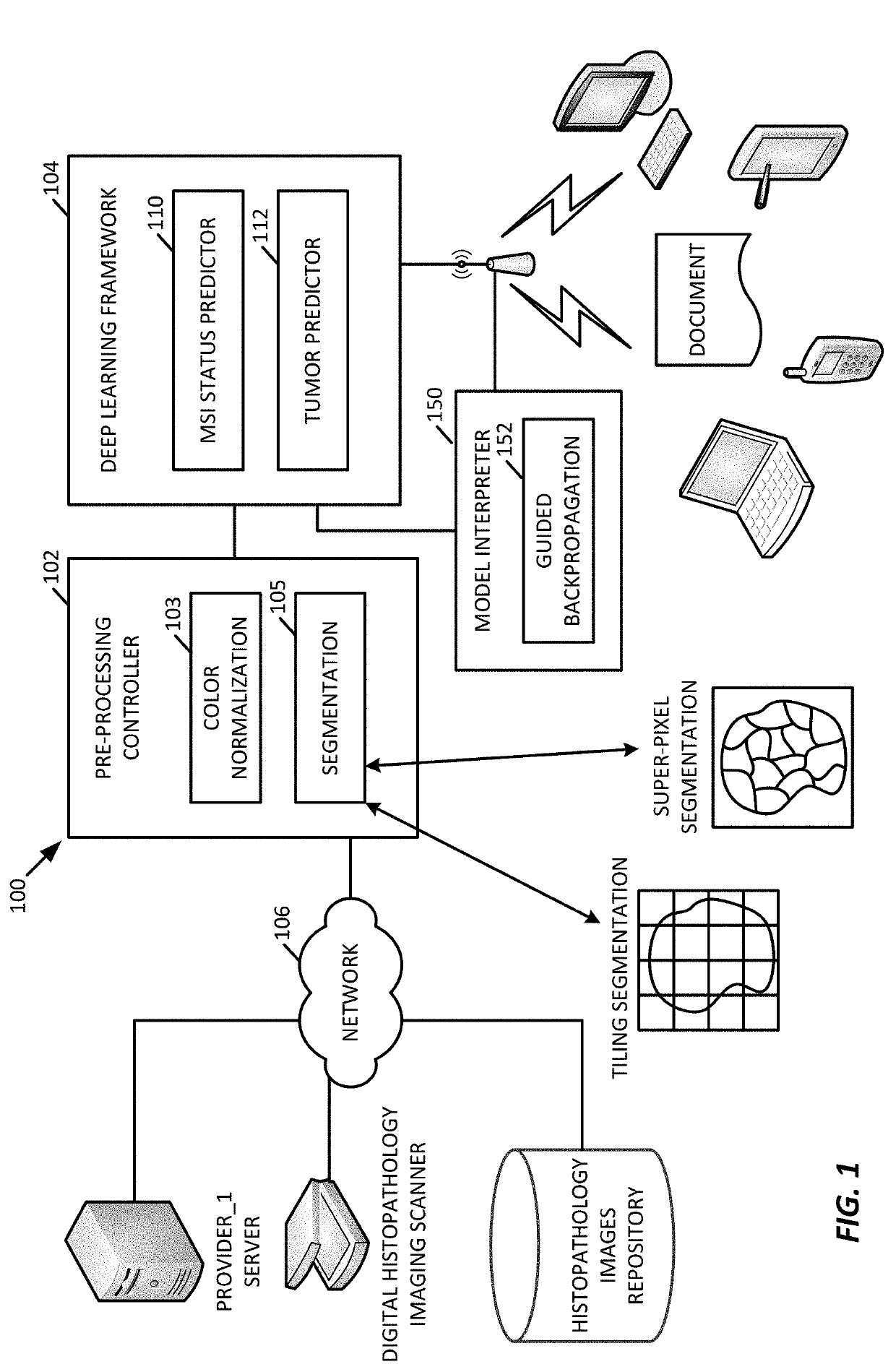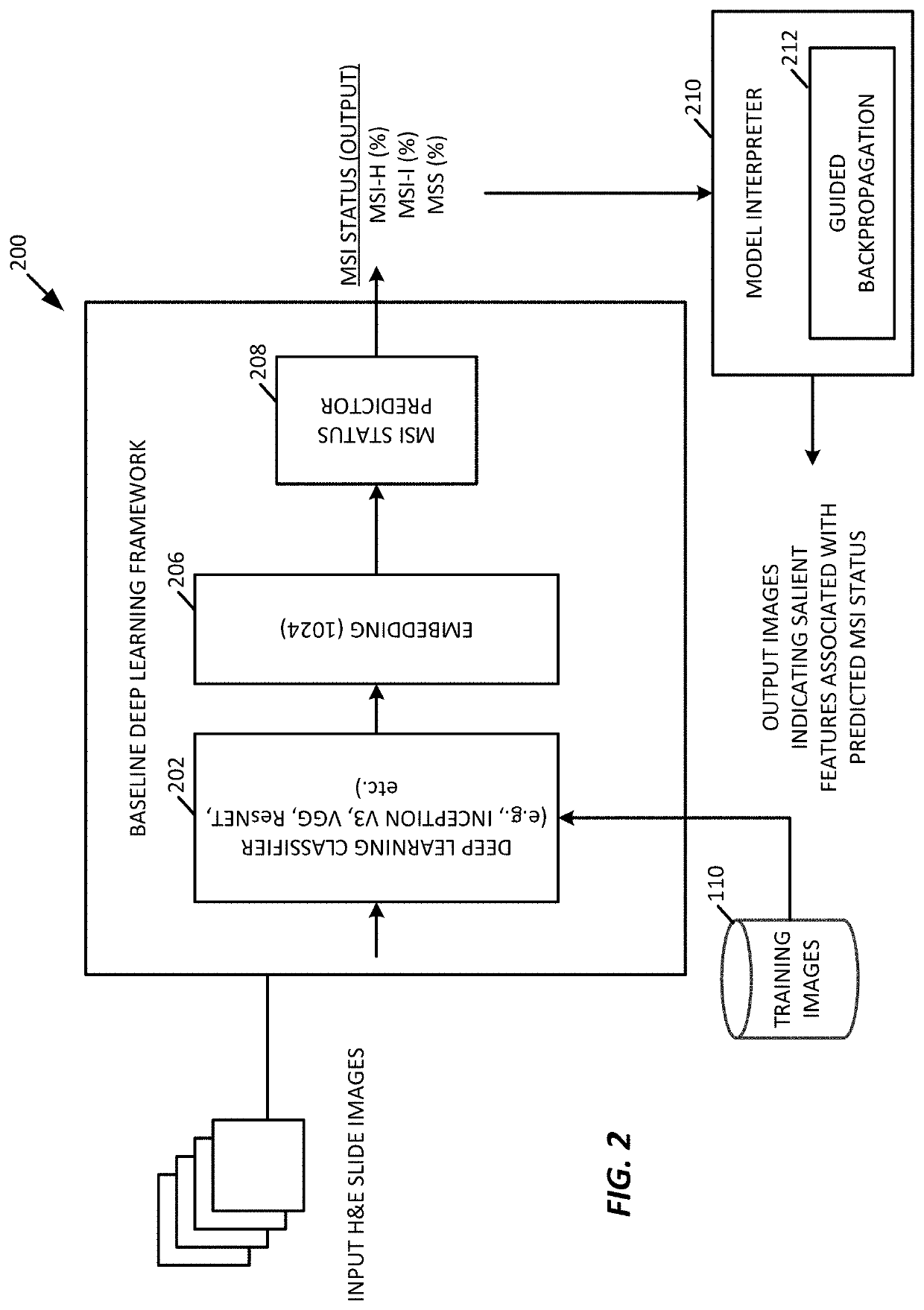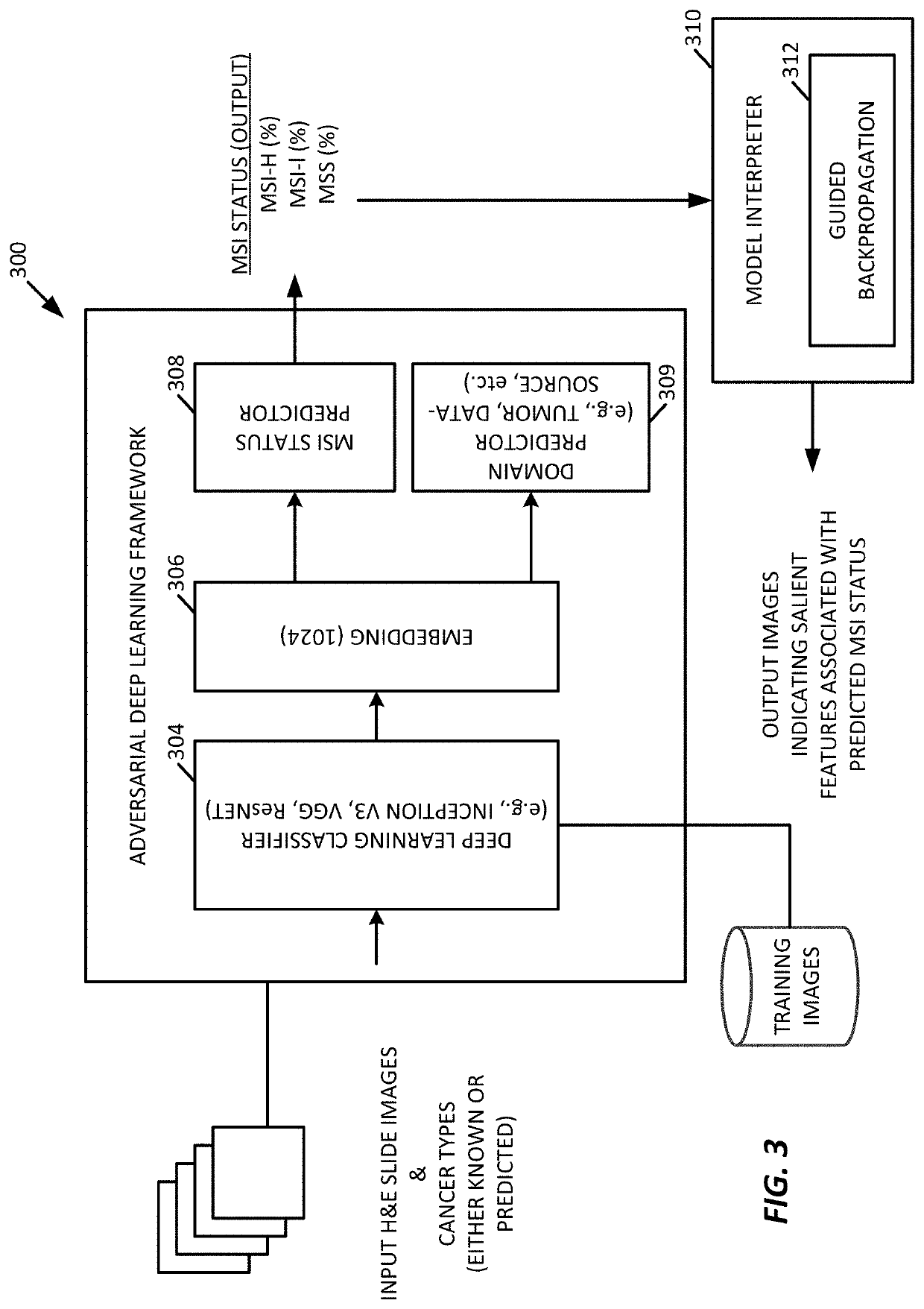Generalizable and Interpretable Deep Learning Framework for Predicting MSI from Histopathology Slide Images
a deep learning framework and microsatellite instability technology, applied in image analysis, image enhancement, kernel methods, etc., can solve the problems of limited widespread msi testing and the assessment and use of challenges, and achieve the improvement of model generalizability, facilitate visual interpretation of our classification model, and improve model generalizability
- Summary
- Abstract
- Description
- Claims
- Application Information
AI Technical Summary
Benefits of technology
Problems solved by technology
Method used
Image
Examples
examples
[0067]While any deep learning framework may be used (e.g., VGG19, Inception-v3, and ResNet-50,), for the testing examples described further below, the processing system 100 was configured to use Inception-V3, in an example.
[0068]To provide comparisons, we used the framework 200 of FIG. 2 to characterize how well a deep learning model trained using a single tumor type generalizes to a new, different tumor type when predicting MSI status. MSI has been reported with high incidence in sporadic endometrial carcinoma.
[0069]In an example, the framework 200 trained individual deep learning models, end-to-end, in a cancer-type specific manner utilizing the non-overlapping training, validation and testing slides to predict MSI status.
[0070]In an example, after averaging the MSI prediction probabilities from all patches in a specific slide, the framework 200 was able to generate an average area under the curve (AUC) of 0.83, which included an AUC of 0.85 (CI=0.64-0.95) for COAD, an AUC of 0.84...
PUM
 Login to View More
Login to View More Abstract
Description
Claims
Application Information
 Login to View More
Login to View More - R&D
- Intellectual Property
- Life Sciences
- Materials
- Tech Scout
- Unparalleled Data Quality
- Higher Quality Content
- 60% Fewer Hallucinations
Browse by: Latest US Patents, China's latest patents, Technical Efficacy Thesaurus, Application Domain, Technology Topic, Popular Technical Reports.
© 2025 PatSnap. All rights reserved.Legal|Privacy policy|Modern Slavery Act Transparency Statement|Sitemap|About US| Contact US: help@patsnap.com



